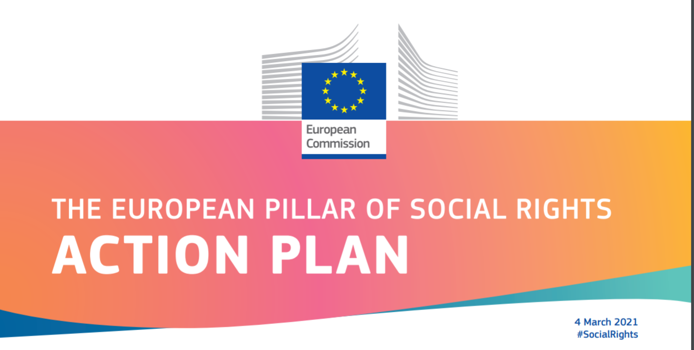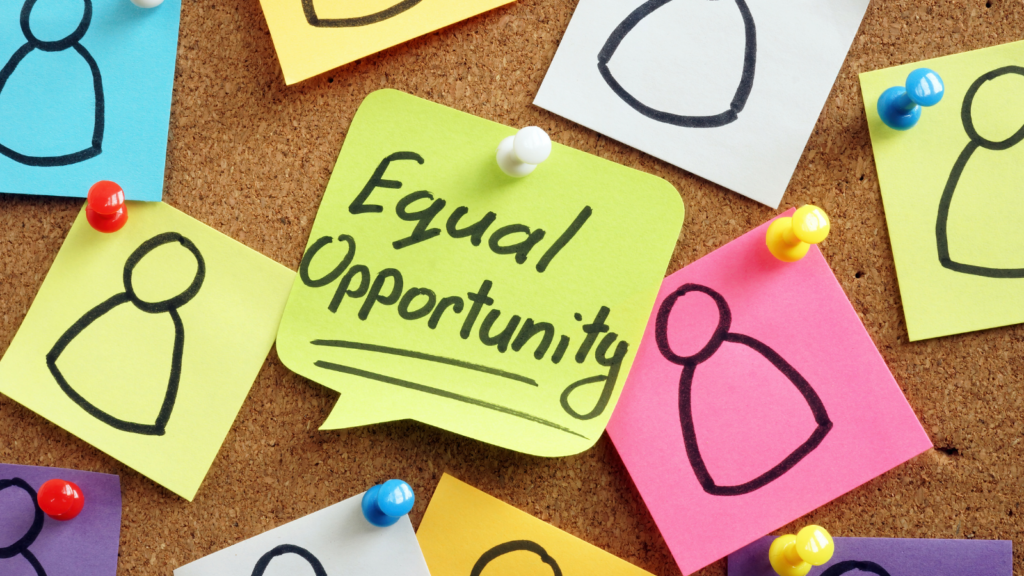#GenerationEquality #IWD2020
Fifteen times more. According to the International Labour Organisation (ILO), across the world, 606 million working-age women (20%) perform unpaid care work on a full-time basis, compared to roughly 41 million working-age men (1.5%). (1) The figure speaks for itself and shows that the gap between women and men in providing care for relatives is very present in our daily lives. This gap is neither always understood nor given the consideration it deserves, and has huge consequences for the gender pay gap, the gender pension gap and the economy.
Therefore, COFACE calls on each and every one of you to take up your responsibility and be the change by learning, using and sharing your rights.
The stereotypical and “traditional” distributions of roles, where women are the caregivers and men are the breadwinners, are still very present. These elements work as disincentives for men’s involvement in family and care responsibilities, and keep women far from the labour market and economic independence.
At the European level, working women spend around 22 hours per week in unpaid work and men only 9 hours (2). Even in the most egalitarian countries in the world like Norway or Sweden, women do at least 20% more unpaid work than men, with the vast majority of unpaid work comprised of domestic chores rather than care work (3).
Addressing the gender care gap, must be one of the key EU policies. We are delighted to see that President von der Leyen and Commissioner Dalli have identified achieving equality between women and men in all aspects of life as a priority in their ambitious and bold Gender Equality Strategy (2020-2025) with targeted actions and legislation to address the several gender gaps, including the care one.
Furthermore, the transposition of the recently adopted Work-Life Balance Directive into national legislation must be enforced and monitored. It is also the occasion to boost care services with specific focus on Early Childhood Education and Care (ECEC) and Long-Term Care (LTC). Both remain essential to invest in health and education of children, as well as family members with care and or support needs such as persons with disabilities and older persons. Developing these services is also a tool to improve work-life balance for working parents and working carers, especially women, who dedicate almost twice as much time than men to the care of their children. (4)
“It is high time to better share the care and to allow more men at home and more women at work to close the gender care gap. In our New Deal for Families of Today we call on a Europe which believes in equal opportunities and encourages men to take up leaves to better reconcile their work with their family responsibilities and gives women the choice to stay on the labour market”, says COFACE President, Annemie Drieskens. “If gender inequalities in the family persist without equal sharing of care, the ‘generation equality’ will remain but a dream.”
Closing the gender care gap also requires a shift in mindset. Therefore, COFACE Families Europe calls on each and every one of you to take up your responsibility and be the change by learning, using and sharing your rights:
- Take up your leaves to achieve true Work-Life Balance;
- Equally share the care and household duties between women and men;
- Be and feel part of what United Nations (UN) Women Executive Director Phumzile Mlambo-Ngcuka calls “the Generation Equality”, which has recently launched the UN Generation Equality campaign;
- Gender equality starts in childhood. Help us ensure that children’s ambitions are not reduced by offering them only and constantly the same predefined roles.
The ILO estimates that 209 years are needed to close the world’s gender care gap in unpaid care work at the current pace (5). It is time therefore for swift and bold action, because addressing the gender care gap is not only about women and girls but involves everyone whose ambition is to build and reach a more social and fairer world.
For more information contact Isabell Wutz, Communication Officer iwutz@coface-eu.org
____________________________________________________________________________________________________________________________________
Notes to editor
- “A quantum leap for gender equality: for a better future work of all”, International Labour Organisation’s report, 2019
https://www.ilo.org/wcmsp5/groups/public/—dgreports/—dcomm/—publ/documents/publication/wcms_674831.pdf - “Striking a balance: Reconciling work and life in the EU”, Eurofound, 2018 https://www.eurofound.europa.eu/sites/default/files/ef_publication/field_ef_document/ef18065en.pdf
- “Reducing and Redistributing Unpaid Work: Stronger Policies to Support Gender Equality”, IMF, 2019
https://www.imf.org/en/Publications/WP/Issues/2019/10/15/Reducing-and-Redistributing-Unpaid-Work-Stronger-Policies-to-Support-Gender-Equality-48688 - In 2016, in number of hours, fathers spent in the EU an average of some 20 hours per week for the care of their children, while the mothers dedicate almost twice as much. Eurofound, op.cit., 2018
- International Labour Organisation, op.cit., 2019
COFACE Families Europe is a European network of civil society associations representing the interests of families (all types, without discrimination). COFACE’s areas of work include social/family policy, education, disability, gender equality, migration, consumer issues, and also protection of children online, privacy, data protection and reflections on technological developments and how they may impact families.
Additional links
- UN’s “Generation Equality” Campaign
- Work-Life Balance Directive 2019/1158
- COFACE’s A New Deal for Families of Today (September 2019)
- COFACE’s “Assessment of the EU Work-Life Balance” (March 2019)
- European Commission Gender Equality Strategy 2020-2025





